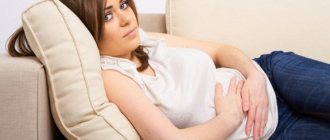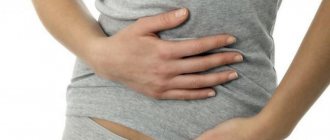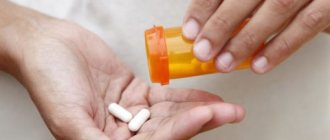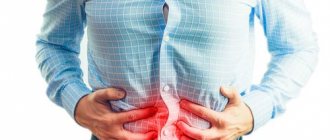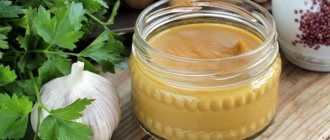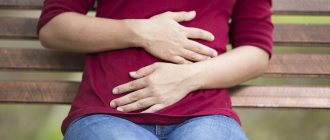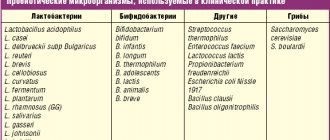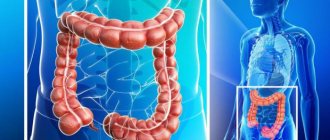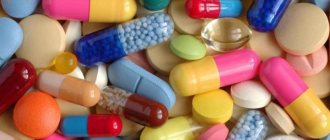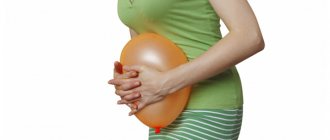Intestines
is an organ of the digestive and excretory system located in the abdominal cavity and consisting of a thick and thin section.
The length of the intestine is from 5 to 6 meters. Of these, 3.5 meters is allocated to the initial section - the small intestine. From 1.5 to 1 meters falls on the final section - the large intestine. The small intestine is located in the middle section of the abdominal cavity and forms the most loops.
After the stomach, digestion continues in the small intestine. Next comes the process of absorption of the digested elements. And waste and toxins are eliminated through the large intestine. Motility refers to the totality of intestinal contractions, as well as its motor activity. All this allows this organ to mix and digest food.
Motor skills are fine
As food passes, the intestines contract and organize the absorption of nutrients through the blood and lymph. When there is no food in the stomach, the small intestine performs rapid contractions. In the large intestine, such contractions occur up to 6 times a day. These contractile movements push feces through. Intestinal motility increases after eating or waking up. The act of defecation is completed by combining an unconditioned reflex and conscious effort.
But what to do if not everything is so smooth? Often you have to carry everything that has accumulated with you. The stomach begins to ache and the person becomes uncomfortable. A lazy intestine with weak motility makes a person suffer. How to fix this? Below are effective methods for enhancing intestinal motility.
Consequences of decreased motor skills
In addition to abdominal discomfort, constipation brings the following troubles to a person:
- dizziness and headaches in the head;
- nausea;
- weakness, lethargy and fatigue.
The reason for these sensations is that the body is not able to remove waste and toxins. Gradually he begins to poison himself, and intoxication is possible.
If you often suffer from constipation, you should reconsider your diet. Lazy intestines need help to push out all unnecessary things from the body.
Emergency help
Laxatives will help get rid of accumulated feces. But it is undesirable to abuse them, otherwise addiction cannot be avoided, and then the medications will no longer give the desired result. Massage has the most targeted effect. It is worth considering that weak stroking will not do any good. You need to do it actively, but carefully, without pressing hard.
Proper nutrition
To avoid constipation, you need to maintain a balanced diet, consume more fiber-rich foods and water. Dietary fiber can be found in mushrooms, fruits and vegetables. For constipation, you need to eat up to 1 kilogram of plant foods per day. You should drink at least 4 glasses of water per day.
To improve peristalsis, you need to introduce unrefined oil into your diet. Then everything unnecessary will come out “like clockwork.” Fermented milk products also have a laxative effect. True, they don’t work on everyone. If you have constipation, you need to limit the amount of animal protein in your food.
Gymnastics for constipation
1. "Bicycle". You need to pedal the invented bicycle as quickly as possible.
2. “Scissors.” You need to lie on your back and, raising your straight legs, spread and cross them.
3. "Kitty." To do this exercise, you should get on all fours and arch your back, tensing your spinal muscles. Then arch your back like a cat, straining your abs.
4. "Bench". You need to lie on the edge of the bench so that your feet are on the floor. Place your hands behind your head and raise your body to a sitting position.
5. "Plow". In a lying position, you need to raise your legs and throw them behind your head.
Walking with high knees helps with constipation. You don’t have to move, just raise your legs one by one, pressing your knee to your body. The wall bars will also help improve intestinal motility. You need to press your back close to it, holding the horizontal bar with outstretched arms at such a height that your legs do not touch the floor. Then raise your legs parallel to the floor, bending your knees.
Gymnastics should be done daily; you should not expect immediate results. But after a week of training, the result will please you.
With the help of the above tips, you can put your body in order and get rid of constipation. But if none of what is listed helps, it is better to visit a doctor. Chronic constipation can lead to the development of serious diseases, including bowel cancer.
Precautionary measures
In order for the treatment to be effective, you need to adhere to a diet and give moderate physical activity to the body. This will increase overall tone and improve the functioning of the gastrointestinal tract. Regular walking is beneficial. If constipation occurs as a side effect due to taking medications, you should consult a doctor and adjust the course.
Most people who have crossed the thirty-year threshold are faced with such a problem as dyskinesia, otherwise - poor intestinal motility. This problem brings a lot of inconvenience and therefore people are increasingly wondering how to improve intestinal motility? We will tell you about this in the article.
The concept of peristalsis
The intestine is the largest organ of the gastrointestinal tract, in which the final processing of food products, their neutralization and absorption of useful minerals into the blood occurs. If peristalsis (motility) is impaired, then all these processes are inhibited. This process causes harm to the body and inconvenience to the person.
When stool stagnates in the intestines, toxins begin to enter the bloodstream and poison the body, causing side symptoms.
Symptoms of intoxication and decreased intestinal motility include:
- frequent headaches;
- constant feeling of fatigue;
- heaviness and pain in the abdomen;
- loss of appetite;
- a person gains weight, although he eats the same as usual, or even less;
- the appearance of a rash on the face, possibly on the body;
- sleep problems;
- bloating that worsens after eating;
- changes in stool, there are fewer of them, they take on a denser shape;
- frequent and painful constipation, which can in rare cases be replaced by bouts of diarrhea;
- general malaise and even fever.
Neither an adult nor a child will be happy with such symptoms of intestinal arrest. Therefore, you need to force your intestines to work on their own, or seek help from a doctor.
Moreover, the second option will be much better, because the cause of poor motor skills can be absolutely any disease
, or the normal functional state of the body. But to figure out what exactly caused the intestinal stoppage can only be done by conducting an examination and passing tests.
Causes of weak peristalsis
Many factors influence intestinal function, and now we will try to find out which of them slow down and even completely stop peristalsis, and which can stimulate intestinal motility.
Reasons that slow down peristalsis:
- Unbalanced nutrition
, when the diet is dominated by foods with high calorie content, foods of artificial origin (fast foods with a lot of spices and sauces and foods with added chemicals - chips, crackers), lack of regularity of meals, its speed (eating a sandwich on the way to office). - Treatment with antibiotics or other drugs that reduce the balance of intestinal microflora.
- Diseases of the gastrointestinal tract
of all parts, including the stomach, liver, and gall bladder. - Tumors in the intestine, both small and large.
- Behavior of surgical intervention on the intestine.
- Inactive lifestyle
, constant sedentary work, frequent climate change. - Predisposition to constipation, their.
- Frequent stress, negative experiences.
- Disturbance in the functioning of nerves, improper innervation of the intestinal walls.
Factors that enhance intestinal motility:
- Constant walking and exercise.
- Maintaining a balanced diet.
- Compliance with the drinking regime is very important for constipation in order to soften the masses and improve their passage through the intestines.
- Using intestinal stimulation - massages and morning warm-ups.
- Normalization of lifestyle, regular and sufficient sleep, adherence to a schedule.
- Undergoing constant annual medical examination and timely treatment of intestinal diseases.
If your life mostly or even completely consists of items on the first list, then do not be surprised that intestinal motility weakens.
To prevent and correct this, live according to the points in the second list and then intestinal problems will leave you for a long time.
But if peristalsis is already impaired for some reason, then there are means to improve intestinal motility in adults and children.
What is peristalsis
To understand what the problem is, you need to understand what peristalsis is. Peristalsis is the contraction of the hollow organs of the digestive system: the stomach and intestines. The speed of wave-like contractions is not the same:
- The duodenum contracts the fastest (about 12 contractions per minute);
- slowest - in the stomach and rectum - about 3 times per minute.
The purpose of peristalsis is to move the bolus of food (chyme) along the entire digestive system from the moment of swallowing food to defecation. Maintaining the correct speed of food digestion ensures comfortable digestion, which a person does not feel or hear.
If the rate of contraction of the gastrointestinal tract organs decreases, the intestinal contents (chyme) move slowly, the processes of putrefaction begin to prevail over fermentation, and corresponding symptoms develop.
But a logical question arises: is increased intestinal motility a pathology, that is, an excess of the normal rate of contraction of the cavities of the digestive system, and does it require treatment? You can find the answer to it by finding out the etiology of the process and the clinical picture against the background of the phenomenon.
How to improve peristalsis?
Restoring intestinal function and enhancing peristalsis is possible only by using several types of treatment simultaneously, namely:
- Folk remedies. This is the first thing that is better to try than to swallow advertised pills, which can only cause harm if the diagnosis is not established.
- Drugs that stimulate bowel function can also be purchased at the pharmacy, but before doing so, you should consult a doctor so that he can select them for you individually and also prescribe the required dosage.
- An excellent tool to enhance peristalsis -. It helps increase blood flow to the intestines, as well as the pelvic organs, thereby helping to move feces forward through the intestines. Helps strengthen the walls of the large and small intestines.
- You can increase peristalsis by following a certain diet. Its main rule
is that we eat and drink everything that is healthy, and don’t even try anything that is not healthy.
Improving peristalsis will largely depend on how the person himself feels about solving his problem.
If he carelessly does gymnastics, washes down pills with coffee after lunch at a pizzeria, then he will not be able to improve his bowel function.
In this case, the intestines did not work, do not work, and will not work. But for those who want to normalize the functioning of their intestines, we will tell you in more detail about each point in the treatment of weak peristalsis.
ethnoscience
Before drinking pharmaceutical medicine, try these methods to enhance peristalsis
:
Wheat bran
- Take two apples and grate them. Add to them a tablespoon of honey and two tablespoons of oatmeal. Squeeze the lemon juice and add it and a couple of tablespoons of warm water to the mixture. Eat it throughout the day.
- Grind plantain seeds and take a teaspoon of them with meals.
- A couple of tablespoons of wheat bran are washed down with a small amount of water or mixed with it and eaten for breakfast.
- Take ten grams of buckthorn root and pour half a liter of boiling water over it. Let the broth brew and drink it throughout the day instead of tea.
- Take two glasses of dried apricots and prunes and grind them in a meat grinder. Add to them a package of senna and two tablespoons of propolis. Pour in liquid honey, approximately 200 ml. Take this mixture before bed in the amount of a couple of teaspoons.
Alternative medicine
To restore the functions of the digestive system, there is a recipe that increases peristalsis. To prepare you need to take 1 tbsp. l. sprouted wheat grains, 2 tbsp. l. oatmeal, 2 medium apples, 1 small lemon and 1 tbsp. l. honey Apples are grated and mixed with the rest of the ingredients and warm water. The drug is used in any quantity throughout the week. A mixture of dried fruits has a laxative effect. 0.5 kg of prunes and dried apricots are passed through a meat grinder and mixed with 50 g of propolis, 200 g of senna and 200 ml of fresh honey. The medicine is taken 2 tsp. before going to bed with a glass of cool water.
Buckthorn decoction has a pronounced laxative effect. 1 tbsp. l. raw materials are poured into 0.5 liters of boiling water, infused for 3 hours and consumed instead of tea. Plantain seeds increase in size after entering the intestines, which promotes the rapid elimination of digestive products. Crushed seeds take 1 tsp before meals. Wheat bran is eaten with warm water. They are necessary for the formation of a sufficient amount of feces. Fruit and vegetable juices, cabbage pickle, apple and cherry compote have a mild laxative effect.
The course of treatment should be accompanied by an increase in physical activity. You should not lie down immediately after eating; it is recommended to take walks or just walk around the house. Active sports - swimming, running, aerobics - restore the functioning of the digestive system. Light abdominal massage, hardening, and special exercises are helpful. They are performed in a supine position. The legs are bent at the knees and raised, making circular movements. This increases the strength of the abdominal muscles, restores blood supply to organs, and improves peristalsis. Improved intestinal tone is the best prevention of diseases of the digestive system.
With increased intestinal motility, it is necessary to cleanse the organ of toxins. Enterosorbents help with this - activated carbon, Smecta, Enterosgel. They bind harmful substances and remove them from the body. Increased bowel contractions are often a symptom of irritable bowel disease. Treatment involves avoiding fast food products and foods that provoke fermentation. Antispasmodics are used to relieve pain. If you have frequent bowel movements, you must take an antidiarrheal drug (Loperamide or Imodium).
Medicines
In order to increase intestinal permeability, laxatives are released. These can be tablets, powder, syrup, drops. All laxatives should be divided into three groups:
| Effect of drugs | Description |
| Drugs that affect peristalsis of the entire intestine. | Here you can use sodium sulfate or magnesium. But you should pay attention to the fact that these substances, increasing the osmotic pressure in the intestines, increase peristalsis. The process goes quite quickly, and the medications take effect after two hours, or even earlier. Therefore, you should not take them before your trip. |
| Laxatives acting in the small intestine. | These medications include oils. They envelop feces, facilitating their easy passage through the intestines. At the same time, they also speed up motor skills themselves. The effect of a laxative occurs within two to six hours. |
| Laxatives acting in the large intestine. | These are drugs from a group of irritants. They tone smooth muscles, toning the intestinal walls. You cannot use them yourself, as addiction and intestinal atrophy may occur. Only a doctor should prescribe such laxatives. These drugs include: |
The normal functioning of the small and large intestines is influenced by factors that are completely different in nature.
The work of the thin depends on:
- presence/absence of problems of the autonomic nervous system;
- consistency and structure of food consumed;
- balance of the acid-base environment of the intestines;
- the presence of various salt solutions.
The motor function of the colon depends on:
- work of internal as well as external sphincters;
- the amount of feces in the large intestine (the more, the stronger the peristalsis).
The motility of the large intestine is much stronger than that of the small intestine.
List of the most effective medications
There are a wide variety of medications that can help solve intestinal motility problems.
A number of medications that are effective in treating adults:
- Exportal. It is one of the safest laxatives. Its effects are somewhat similar to lactulose. Well accepted by patients.
- Linaclotide is a relatively new enterokinetic. There are practically no side effects if you take the drug correctly, as prescribed. The recommended dose is one tablet per day.
- Prelax, Duphalac are mild laxatives, the action of which is aimed at restoring intestinal motility and normalizing microflora. They are safe means, therefore they are used in the treatment of pathologies in children.
- Motilak and Motilium are the most common and popular drugs. Restore motility of the entire gastrointestinal tract.
- Mucofalk is a plant-based product. The composition contains psyllium seed shells. The action is aimed at normalizing the functioning of the colon. Can be used during pregnancy.
- Itopride is recommended for the treatment of the disease at an early stage.
All medications should be taken only on the recommendation of the attending physician according to the instructions or according to the established schedule.
Types of motor skills disorders
There are various gastrointestinal motility disorders:
- Intestinal obstruction. Occurs after a foreign body enters the stomach, injury or disease. A common cause is complications accompanying the formation of tumors on the intestinal walls. It is possible to restore patency during surgical operations - drugs in this case will not bring improvement.
- Structural anomalies. Similar disorders occur during fetal development. Quite often it is possible to improve motor skills at home using only stimulating exercises. However, sometimes restoration of intestinal functions is possible only after surgery.
- Stenosis. Very often the symptoms of stenosis are confused with obstruction. They appear immediately after birth or in the first year of life. It is possible to restore normal operation only with the help of surgical intervention.
- Dyskinesia. In this case, violations can be either intensifying or weakening. With intensification, bloating, diarrhea, and rumbling are observed. It is often possible to restore normal functioning of the gastrointestinal tract and improve motor skills at home, without resorting to hospitalization. To do this, you need to take special medications after consulting a doctor.
Drugs
If diet and exercise fail to normalize peristalsis, then drug support is necessary. There are two main groups of drugs most often used:
- Medicines that stimulate muscle tone.
- Laxatives.
Medicines that stimulate muscle tone
Medicines that improve neuromuscular transmission and normalize contractions of the intestinal wall include:
- Prozerin. Used for acute intestinal atony to quickly normalize peristalsis. 0.25 mg is administered subcutaneously or intramuscularly every 4 hours, duration of therapy is 3 days.
- Motilium. It is used for impaired peristalsis due to dyspeptic symptoms, and is approved for use in children. The maximum dosage per day is 80 mg, divided into three doses or taken once at night.
- Aceclidine. It is used for emergency treatment of intestinal atony - 1-2 ml is administered subcutaneously.
Laxatives
Means that facilitate the act of defecation by accelerating peristalsis:
- Bisacodyl. By enhancing secretion, it enhances peristalsis and facilitates the movement of feces.
- Guttalax. Stimulates the large intestine, promoting an increase in electrolytes and water in the lumen.
- Regulax. It acts as an irritant on the intestinal walls, enhancing peristalsis and facilitating the act of defecation. Due to its mild action, it is approved for use in children.
- Senadexin. A herbal preparation that accelerates peristalsis and facilitates bowel movements.
Intestinal peristalsis is one of the main physiological elements in the process of food digestion. Under the influence of internal and mainly external factors, peristalsis can slow down, and any person can restore it independently.
What are the main causes of motility disorders, how to improve intestinal motility with the help of dietary adjustments, exercise, folk recipes and modern pharmaceuticals.
Factors that provoke impaired intestinal motility
Violation of intestinal motor function is not always caused by congenital characteristics of the body. A more common reason is external factors, namely:
- unhealthy diet - fast food, fried, smoked foods not only have a negative effect on the body as a whole, but also provoke intestinal diseases in particular. The bulk of such products are poorly digestible, which contributes to the development of stagnation in the intestines, fermentation and rotting of food;
- chronic diseases. These include not only diseases of the gastrointestinal tract, but also related organs (liver, gall, pancreas);
- neoplasms. Both evil and benign. After operations to remove them, it may take some time to restore peristalsis;
- operations. Carrying out operations on any of the abdominal organs can lead to disturbances in gastrointestinal motility. The problem does not always occur immediately after surgery - sometimes the first symptoms begin to appear several months later. The root cause of this condition is the peculiarity of the body’s reactions to external intervention, but surgeon errors can also play a role;
- Lifestyle. This factor includes a sedentary lifestyle, lack of physical activity, and prolonged stress;
- medications. Some groups of drugs can have a negative effect on intestinal function;
- independent factors. Genetic predisposition, and age - the older the person, the higher the likelihood of problems occurring.
The greatest danger is posed by the simultaneous action of several provoking factors. For example, if there is a genetic predisposition, then you should pay special attention to your diet and lifestyle.
Other methods of enhancing peristalsis
The use of drug therapy is advisable with an integrated approach to the treatment of constipation. So, to ensure a better therapeutic effect, in addition to medications, the following is used:
- Diet. Exclusion from the diet of fatty, smoked, fried foods. You need to drink up to 2 liters of clean water per day (excluding soups, compotes, etc.), eat several vegetables or fruits, ideally a few more nuts and prunes (see Foods that enhance intestinal motility). The daily diet should include bran, water-based cereals, and foods high in plant fiber. In the morning, half an hour before breakfast, you need to drink a glass of cool water; a glass of fresh kefir an hour before bed also gives good results.
- Physiotherapy. This includes the “Bicycle” exercise, squats, self-massage of the abdomen, and playing sports.
- Cold and hot shower.
- Avoiding stress.
- Rejection of bad habits.
Statistics show that a large part of the population of developed countries suffers from diseases associated with the gastrointestinal tract. It is the digestive system that is one of the first to begin to lose its functions, which entails the development of all kinds of pathologies and diseases. Even in ancient times, doctors advised changing lifestyle and diet in order to cope with illnesses.
Good health and performance of the body at any age depends on the proper functioning of the intestines. Any disruptions in the functioning of the digestive system immediately affect a person’s well-being and become a prerequisite for weakened immunity and the development of unwanted pathologies. Let's take a closer look at what happens to the body when intestinal motility is disrupted (dyskinesia), how to deal with this condition and restore the normal functioning of the digestive tract.
Proper nutrition
The misconception is that diet is only important before or after surgery. In fact, proper nutrition is the key to normal intestinal function. An unbalanced diet is the main cause of impaired motor skills. That is why it is important for absolutely everyone to follow proper nutrition in order to prevent the occurrence of any problems and unpleasant symptoms of the gastrointestinal tract.
Basic elementary rules that help normalize motor skills:
- do not overeat;
- eat small portions and often;
- adhere to a diet;
- eat more fresh fruits and vegetables than processed ones.
Depending on the stomach problem, you should plan your menu. Different products have different effects.
Foods that impair motor skills:
- hot drinks;
- sweets, chocolate;
- baked goods made from white flour;
- pear;
- protein food, meat.
Foods that improve motor skills:
- cold drinks;
- yoghurts, kefir;
- greenery;
- seafood;
- nuts;
- buckwheat and oatmeal;
- vegetables (high in fiber), fruits (tasting sour).
Diet
Maintaining proper nutrition is beneficial not only for the intestines, but also for the whole body. Some foods may increase peristalsis while others may slow it down.
To enhance intestinal motility, take:
- fresh vegetables especially cabbage, tomatoes, radishes, cucumbers, carrots and onions;
- fresh fruits and berries - watermelons and melons, apples and plums, apricots and prunes, dried apricots;
- fermented milk products - fermented baked milk, cottage cheese, kefir;
- compotes, jelly, fresh juices;
- white kvass and wine, mineral water, cold or warm teas, but not hot;
- oatmeal, buckwheat, egg;
- various types of vegetable oils;
- nuts;
- spices and herbs in moderation will stimulate the intestines;
- wheat bran.
Food should be fresh, warm, and go well together. You need to eat at least four times a day. It is important to adhere to the drinking regime.
So if you want to increase intestinal motility, go from natural to artificial.
Lack of fluid in the diet is one of the main causes of constipation. To get rid of it in 3 days, you need to drink a simple remedy every day.
Monitor your lifestyle constantly, and then you won’t have to resort to laxatives to restore bowel function.
Special exercises
Physical activity helps normalize intestinal function. Properly selected exercises have a beneficial effect on the body as a whole, including, of course, the intestines. Complex exercise is especially useful: walking, swimming, light exercise. At the same time, the condition of the abdominal organs improves and the central nervous system relaxes.
These types of exercises are also useful:
- raising legs from a lying position;
- lifting the body.
Performing physical exercises should be agreed with your doctor.
Reasons for violation
Poor motor skills may be due to the following conditions:
p, blockquote 10,0,0,0,0 —>
- Neglect of diet and principles of nutrition. An unbalanced diet with a predominance of fatty, heavy, high-calorie foods.
- Chronic gastrointestinal diseases.
- Tumor processes in elements of the digestive system.
- Operations on the abdominal organs.
- Physical inactivity is a complete lack of physical activity or exercise.
- Elderly age. Although young women during pregnancy, newborn infants, and older children often need to improve intestinal motility.
- The tendency to have sluggish motor skills can be genetically programmed, that is, hereditary.
- Treatment with medications that provoke dyskinesia. For example, taking antibiotics (if it is not combined with the use of probiotics, it can cause dysbiosis). And imbalance of microflora, in turn, affects intestinal motility.
Often the cause of disorders in the digestive system is disruptions in the functioning of the central nervous system.
p, blockquote 11,0,0,0,0 —>
Proper nutrition
Since the functioning of the gastrointestinal tract directly depends on what we eat, it is imperative to reconsider your diet. At the same time, you need to understand that different products have completely different effects on intestinal motility, contributing to the enhancement or reduction of its functions.
Helpful for sluggish bowels:
- vegetables that contain a lot of fiber: beets, carrots, turnips, radishes, radishes, fresh and pickled cabbage;
- legumes, tomatoes, cucumbers, onions, melon, watermelon, which have cleansing properties;
- plums, apricots, persimmons, sour apples, dried fruits;
- gooseberries, raspberries, strawberries, grapes, blueberries;
- yogurt, kefir, yogurt, sour cream, fermented baked milk;
- oatmeal, barley and buckwheat porridge, bran;
- oil from sunflower, olive, corn, flax;
- seafood, fish, kelp;
- nuts, sprouted grains, flaxseeds, greens;
- ice cream (especially fruit ice cream);
In order not to harm the intestines, find out. You can avoid complications, including poisoning.
- cold apple and cherry compotes, fruit, carrot, beet and cabbage juices, cabbage brine, still mineral water, white grape wine.
You can reduce peristalsis by consuming:
- meat dishes, boiled eggs, butter;
- fresh white bread, baked goods;
- pearl barley, rice and semolina porridge, rice water;
- vegetable purees and pureed soups;
- pomegranates, pears, quinces, fresh and in the form of compotes;
- bird cherry, chokeberry, berry jelly on potato starch;
- chocolate;
- hot tea, coffee, cocoa, as well as red grape wines.
By wisely selecting products from the lists above, you can quickly get rid of unpleasant symptoms and improve intestinal function.
During the period of treatment, exclude fried, smoked, fatty and canned foods from your menu. Maintain a drinking regime - at least 2 liters of water per day. For constipation, start the day with a glass of water before breakfast and end it with the same dose of kefir before bed.
There are no special dietary restrictions, the main thing is that you eat a balanced, moderate, fractional portion 5-6 times a day.
Foods that reduce intestinal motility
Food products, in turn, are divided into two large groups: the first includes everything that reduces peristalsis, and the second, those that increase it.
So what can reduce peristalsis?
- Any hot drinks such as tea or coffee;
- Red wine;
- Fresh baked goods and any baked goods;
- Chocolate;
- Kissel and dishes with a high content of potato starch;
- Some porridges are such as rice or pearl barley;
- Cream soup or pureed vegetables;
- Meat or egg products with a high butter content;
- Some fruits, for example, quince or pear and dishes made from them, as well as chokeberry and bird cherry.
Foods that increase intestinal motility
- These are any cold compotes, as well as juices from fruits or berries, kvass, wine (white) and mineral water;
- Any fresh fermented milk products containing live lacto- and bifidobacteria;
- Ice cream, especially fruit ice cream;
- Vegetables that contain a lot of fiber (cabbage in any form, beets, carrots, turnips, radishes and radishes);
- Watermelons and melons, tomatoes and cucumbers, onions and legumes perfectly cleanse your intestines;
- This also includes some fruits and berries, including apples, plums and apricots, as well as persimmons. Also included in the list are grapes, strawberries, raspberries, gooseberries, and blueberries;
- Dried fruits such as figs, dried apricots, prunes and raisins help well in this case;
- Oatmeal, buckwheat and barley cereals;
- Almost all vegetable oils;
- Bran and products that contain them;
- Nuts and greens.
Among other things, doctors advise consuming large quantities of fresh vegetables, and they can even be in the form of juices from carrots, beets or cabbage. If you want, you can make a salad seasoned with a little vegetable oil.
Other recommendations include split meals, preferably 5-6 times a day. Portions should be small.
Reduce as much as possible the amount of fried and smoked, pickled and overly salted foods, as well as baked goods and baked goods. Try using something as simple as drinking a glass of water on an empty stomach before breakfast.
There are also a lot of less radical ways to help the intestines, they are especially relevant when you need to correct this condition in a child. They will also be relevant during pregnancy.
You can make a laxative mixture from the following products: take two tablespoons of grain (preferably sprouted wheat) and the same amount of oatmeal, 1 tablespoon of honey and another one of any nuts, half a lemon and 2 apples. Finely chop the apples, mix with all the other ingredients and pour in lemon juice. This mixture can be consumed during any meal.
Try mincing half a kilogram of dried apricots and the same amount of prunes. Then add 2 tablespoons of propolis, 250 milliliters of honey and a pack of senna grass. Take 2 teaspoons before bed.
In addition, you can brew a tablespoon of buckthorn bark in half a liter of boiling water. You need to insist and drink it like tea.
A good remedy is crushed plantain seeds, which you take 1 teaspoon before meals. In the intestines they will swell and help the stool move forward.
One of the simplest and most effective medicines is bran. Just 1-2 tablespoons is enough, which should be washed down with water.
A mild laxative can be fruit decoction, cabbage brine and freshly squeezed juice, tea with dried cherries and apples.
Remember also that while adjusting your diet, you definitely need to diversify your physical activity. Any physical activity will also trigger your intestines.
In addition to physical exercise, you can also do a daily abdominal massage, douse yourself with cold water, or give yourself a contrast shower.
Here are a few exercises that will jump-start any, even the laziest intestines. We lie on our backs and begin to twist our legs, imitating riding a bicycle. We remain in the same position and press our knees tightly to our stomach.
We stand in the so-called knee-elbow position and alternately stretch back the right leg, then the left. Try to raise them as high as possible. You can pump up your abs. The more, the better, but at first 10 - 20 repetitions are quite enough.
At the end of the exercise, do squats. We finish everything by jumping rope or just standing still, alternating legs.
That's all I would like to tell you about improving intestinal motility for today. Use these simple and affordable methods and stay healthy. I look forward to seeing you again on the pages of my blog.
Physical exercise
The level of physical activity directly affects the health of the intestines. One of the reasons for weakening peristalsis is a sedentary lifestyle and refusal of sports activities.
There are special sets of exercises designed to maintain intestinal health. Among them are squats, bending and lifting the body, strengthening the walls of the abdominal press. Aerobics, swimming, running, and regular morning exercises are also used for medicinal purposes. In principle, you can choose for yourself any convenient methods that focus on supporting the muscles of the whole body with an emphasis on the abdominal ones.
To improve intestinal motility, you can perform the following simple exercises:
- As soon as you wake up, lie down on a hard surface, stretch your arms along your body or place them on your stomach. Squeeze and inflate your belly for a few minutes.
- Slowly pump your abs, lifting your torso 10-20 times.
- Lying on your back, bend your knees and alternately press your tailbone and lower back to the floor.
- Without changing position, raise and lower your pelvis.
- Do the bicycle exercise.
- Lying down, lift both straight legs, if difficult, one at a time.
- Alternately and together, pull your knees toward your chest.
- Grasp your bent knees and press tightly to your stomach, maintaining the position for a few seconds.
- Kneel down, alternately stretch your legs and arch your back.
- Kneeling, lean on your elbows and palms, lower your head. Lower your buttocks first to the left, then to the right side.
- Jumping on the spot or with a skipping rope.
- Very slow squats.
- Finally, walk rhythmically in place.
In addition to the sport itself, massage has an excellent effect. Before each meal, simply stroke your belly clockwise.
Folk remedies
The most popular home remedies to restore normal peristalsis are the following:
- Take 1-2 tbsp. l. steamed with boiling water or raw wheat bran and wash down with a small amount of water. Fiber works similarly, adding 1-2 tablespoons to food and drink.
- Mixture of 2 grated apples, 1 tbsp. l. chopped nuts, 1 tbsp. l. sprouted wheat grains, 2 tbsp. l. oatmeal, 1 tbsp. l. honey, juice of half a lemon and 2 tbsp. l. warm water. Take in any quantity for 7 days.
- Grind 500 g of prunes and the same amount of dried apricots in a meat grinder, add 200 g of senna, 200 ml of liquid honey and 50 g of propolis. Take 2 teaspoons with cool water before bed.
- A few teaspoons of milk thistle seeds a day, 30 minutes before meals.
- 1 tsp. crushed plantain seeds before eating.
- Red rowan berries should be poured with boiling water and taken several times a day, 1 tablespoon 15 minutes before meals.
- Finely chop the rose hips and take 1/2 teaspoon once a day before bed.
- As a mild laxative, you can take buckthorn decoction, which you drink instead of tea. Steam a tablespoon of raw material with 500 ml of boiling water and leave for 3 hours.
- Eat salted lard in small quantities daily.
- Prepare semolina porridge regularly without sugar and salt. Roast with beans and pumpkin, beet salad with garlic, oatmeal jelly, honey have a good effect on peristalsis.
- Suppositories with propolis. This treatment requires rest, so it is best to place them at night before bedtime.
It would also be a good idea to purchase special herbal infusions at the pharmacy. Herbal teas are specially selected for a specific organ or system and help not only in treatment, but also in prevention.
When using traditional medicine, consider your tolerance to individual components and monitor the results of treatment. If there is no improvement after 3 days of taking the drug, replace it with another one.
Drugs that increase intestinal motility
518 (views) In this article, first of all, it should be said about drugs that enhance intestinal motility by influencing its receptors. In this case, agents acting on afferent and efferent innervation can have a stimulating effect.
First of all, let us point out the means that increase the tone of the cholinergic nerves:
- M-cholinomimetics (aceclidine) and anticholinesterase agents (prozerin).
These drugs are successfully used for hypotension or intestinal atony.
Vasopressin, which has a stimulating myotropic effect, is sometimes used. Drugs that enhance intestinal contractility include laxatives.
Laxatives are drugs that speed up bowel movements by increasing intestinal motility and increasing the excretion of water in feces. The latter is a consequence of impaired absorption of water from the intestinal lumen, or an increase in its secretion. Currently, a large number of laxatives have been created, hence the many classifications of drugs in this group.
I. Laxatives affecting the entire intestine
These are, first of all, saline laxatives : MAGNESIUM (Epsom salt) and SODIUM (Glauber's salt) SULFATES.
When taken, the osmotic pressure in the intestinal lumen increases, which prevents the absorption of the liquid part of chyme and juices. The volume of intestinal contents increases, this leads to stimulation of mechanoreceptors and increased peristalsis. Saline laxatives act on the entire intestine, the effect occurs within 1-3 hours from the moment of administration.
Salt laxatives are prescribed for acute poisoning, for acute constipation, before surgery to cleanse the intestines, before proctological examinations, and also together with some anthelmintic drugs to expel worms.
Saline laxative is diluted in 1/2 glass of water and washed down with two glasses of water.
These are the strongest laxatives, they act the fastest and stop further absorption of toxins from the intestines.
II. Laxatives acting primarily on the small intestine
Castor oil (Oleum Ricini; drops 1.0 and bottles 30.0 and 50.0). It not only improves motility, but also softens stool, due to which its elimination is significantly accelerated. In the duodenum, under the action of pancreatic lipase, it is hydrolyzed to release glycerol and ricinolic acid. The latter irritates the cells of the intestinal mucosa, inhibits the process of active absorption of water and electrolytes, which leads to increased motility and accelerates bowel movements. Trihydric alcohol - glycerin, enveloping the mucous membrane, facilitates the movement of the contents. This is a natural substance that is a component of any fat . Glycerin is a thick, syrupy liquid with a sweet taste. Miscible with water in any ratio. The effect appears after 2-6 hours, sometimes with moderate cramping pain in the abdomen.
Indications for use are the same as for saline laxatives, and in addition, for X-ray examination of the intestines (they act more mildly than saline laxatives), as well as for complex stimulation of labor and, previously, in the treatment of enteritis (old method). Drugs in this group are contraindicated in acute poisoning with fat-soluble poisons (kerosene, gasoline).
III. Laxatives affecting the colon
Drugs that act primarily on the large intestine are of great practical importance. This group of drugs includes drugs:
- Plant origin.
- Synthetics.
- Various medicines.
1. Of herbal containing so-called anthraglycosides (consisting of sugars and anthracene derivatives, for example, emodin and chrysophanic acid), preparations of rhubarb root , leaves and root of senna , Alexandria leaf , buckthorn bark, licorice root , , plum . Laxatives of plant origin are used in the form of powders, tablets, dry extracts, tinctures, drops, suppositories. In the small intestine, anthraglycosides (emodin, chrysophanic acid) are absorbed and enter the blood, and in the colon, on the contrary, they are released from the blood into its lumen and irritate the receptors of the colon, which causes contraction of the muscles of only this part of the intestine. The tone of the colon increases.
Some of these compounds enter the intestines unbroken. Thanks to the action of the drugs, the reduced evacuation function (slow defecation) is normalized. Diarrhea usually does not occur, but a smooth restoration of the act of defecation occurs.
2. Synthetic drugs include PHENOLPHTHALEIN in the form of tablets (purgen), ISAFENINE, BISACODYL, PICOSULPHATE (GUTTALAX). The laxative effect develops after 6-8-12 hours.
There are also standardized preparations: Kalifig (figs, senna - extracts, clove oil and oil of Alexandria leaf, mint), Regulax (senna - leaves and fruits, fig and plum puree, liquid paraffin, etc.), Kafiol .
Main indications for the use of these funds:
- Chronic constipation; acute constipation before and after surgery.
- To facilitate bowel movements in case of hemorrhoids.
- To facilitate defecation in cases of rectal fissures.
- Intestinal atony caused by stress, poor nutrition, poor diet, and sedentary lifestyle.
These medications are taken once a day, usually before bed, depending on your bowel habits.
When prescribing these drugs, digestion and absorption in the small intestine are not impaired. The drugs are usually well tolerated, but with long-term use of some of them ( rhubarb drugs ), chronic severe liver dysfunction sometimes occurs. Such drugs should not be prescribed to nursing mothers, as they are excreted in milk and can cause diarrhea in the baby. There may also be individual intolerance to drugs. It should be remembered that long-term use may result in loss of electrolytes, especially potassium , as well as albuminuria and hematuria .
synthetic drugs are also used - phenolphthalein ( purgen ) in tablet form, isafenin, bisacodyl, picosulfate (guttalax).
Phenolphthalein (Phenolphthaleinum; in tablets of 0.05 and 0.1) when taken orally passes through the stomach unchanged, and dissolves in the alkaline environment of the intestine in the presence of bile acids. 85% of the phenolphthalein taken moves with food through the intestines, and 15% is absorbed into the blood. Part of the absorbed drug is excreted in the urine, turning it red when the urine is alkaline, and part is excreted with bile back into the intestine, closing the enterohepatic circulation. The latter determines the 3-4 day duration of the laxative effect of phenolphthalein. Its mechanism consists, firstly, in the drug inhibiting the sodium-potassium ATPase of the mucosal membranes (the absorption of sodium and water is impaired), and, secondly, in influencing the effects of calcium in intestinal smooth muscle cells.
The laxative effect of phenolphthalein develops 4–8 hours after taking the drug, usually without any intestinal discomfort, and lasts up to 3–4 days. However, some patients may experience intestinal colic, palpitations and even collapse. There are allergic reactions (even shock) when the medicine is used again.
Phenolphthalein is prescribed one to three times a day. The more modern laxative effect of Izafenin is associated with the release of dioxyphenylisatin in the intestines. Izafenin is similar in action to phenolphthalein, but is less toxic. The effect develops after 6-8 hours.
An even more modern drug Bisacodylum (in tablets of 0.005 and in suppositories of 0.01), when administered orally, acts within a few hours, when administered in the form of rectal suppositories - within the first hour. The drug increases mucus production in the colon, accelerates and enhances its peristalsis. Bisacodyl is well tolerated; in case of overdose, abdominal pain and frequent loose stools occur.
The drug is indicated for constipation caused by hypotension and sluggish peristalsis after surgery, childbirth; for proctitis and paraproctitis, anal fissures, hemorrhoids, as well as hernias; with cardiovascular failure; in preparation for surgical operations, instrumental and x-ray examinations.
With prolonged use of the above laxatives, addiction to them may develop. In this case, you have to alternate between different drugs.
Guttalax drops are convenient because you can individually select the dose for both children and elderly patients.
III. Various medicines
Chemically inert substances that are not absorbed and envelop the mucous membrane, liquid oils, for example, Vaseline oil (an emollient), also have a laxative effect
For the same purpose seaweed , which, swelling in the intestines, stretches it, stimulating peristalsis. Prescribe 1-2 teaspoons at night. Since the drug contains a high iodine content, this can lead to the development of iodism (runny nose, conjunctivitis, cough). Contraindications: nephritis, hemorrhagic diathesis.
Laxatives of any mechanism of action should not be prescribed for a long time, as there is an intense loss of cations, especially potassium, in feces. Hypokalemia and hypocaligistia develop, disrupting the synthesis of acetylcholine in general and in the intestines in particular. This is accompanied by constipation, anorexia, muscle weakness, suppressed reflexes, and bladder paresis.
Foods that improve peristalsis
As mentioned above, to accelerate the wave-like contractions of smooth muscles, you need to completely change your eating habits. It is best to completely exclude from the menu or significantly limit the consumption of fatty, salty and smoked foods, and avoid drinks with a high caffeine content. The following products have a beneficial effect on peristalsis:
- dried fruits. Figs, dried apricots, prunes and others should be in your daily menu;
- fermented milk products – kefir, fermented baked milk, high-quality yoghurts;
- freshly squeezed juices of cabbage, carrots, potatoes;
- fresh vegetables and fruits;
- flax seeds, all types of nuts, sprouted cereals;
- porridge. To prepare them you need to use buckwheat, oatmeal and millet. Semolina and rice should be excluded from the diet for a while, as they “strengthen” the stomach;
- lean meat with the addition of plenty of vegetables.
In addition, you need to drink at least 2 liters of water throughout the day. Avoid carbonated drinks completely. You should not remove hot and spicy dishes from the menu, as they stimulate the intestines.
It is better to exclude eggs in any form, pomegranates, pastries, potatoes, strong black tea altogether. The thing is that these products slow down peristalsis and can create serious problems with bowel movements.
In case of intestinal diseases, it is highly advisable to completely avoid foods containing sugar. The thing is that it enhances putrefactive processes in the digestive tract and often turns out to be the main cause of intoxication. We recommend replacing it with fresh vegetables and fruits or natural sweeteners.
An excellent solution to the problem of bowel movements is fractional meals. Food should be taken in small portions 5-6 times a day. By following this regimen, you can get rid of a wide variety of diseases of the gastrointestinal tract.
In no case should the urge to defecate be ignored, as this leads to a gradual relaxation of smooth muscles and often causes undesirable consequences.
We supplement proper nutrition with physical activity
If you lead a sedentary lifestyle, you urgently need to increase physical activity. Start with light exercises in the morning, gradually introducing exercises such as “bicycle”, lifting and spreading your legs to the sides from a supine position. They increase muscle tone and have a beneficial effect on the entire digestive system.
Jogging, which can renew the body in a very short time, cycling or training on special exercise equipment, can also improve the functioning of the gastrointestinal tract. Remember that physical activity is one of the prerequisites for accelerating peristalsis. If you cannot exercise due to a simple lack of time, try to walk as much as possible.
When smooth muscle function slows down, serious problems with bowel movements (constipation) arise, and metabolism also deteriorates. Because of this, the entire body suffers. First, weakness and a feeling of constant fatigue appear, and then any diseases of the digestive tract and other organs may develop.
….:
Traditional medicine
In case of pathological processes and lack of response to alternative treatment methods, a consultation with a gastroenterologist or proctologist is necessary, who, after conducting tests, will prescribe individual treatment. Pharmaceutical products are quickly effective and require no effort on the part of the patient. But without changing your lifestyle, their effect will be short-lived.
For complex treatment, drugs are usually used that enhance peristalsis and muscle tone, eliminate bloating, and normalize the process of food digestion. These drugs are combined with medications containing enzymes and laxatives based on herbal, oil, salt or synthetic bases. If dysfunction has developed due to prolonged stress, antidepressants, antipsychotics or tranquilizers may be prescribed.
If you see an error, please select a piece of text and press Ctrl+Enter
.
Contraindications
Before using the above groups of drugs, you must consult with a gastroenterologist and therapist, since only after diagnosis is their use considered possible.
Contraindications to their use will be:
- Oncology of the gastrointestinal tract, in particular the intestines. Laxatives and any other medications that improve peristalsis may not only not solve the problem, but also aggravate it. If the intestinal cavity is completely or partially closed by a tumor or polyp, then a sharp increase in pressure due to stimulation of motility can cause acute intestinal obstruction, intestinal volvulus, or perforation of the formation.
- Ulcerative defects of the gastrointestinal tract.
- Threatening bleeding.
- Intestinal obstruction.
- Inflammatory diseases of the gastrointestinal tract in the acute stage.
- Allergic reaction to the components of the drug.
- Acute surgical pathology.
- Pregnancy and lactation period. This contraindication is relative, since the use of lactulose-based laxatives (Duphalac) can be prescribed to pregnant women and even infants.
Be sure to read:
Saline laxatives: names of drugs and their use
